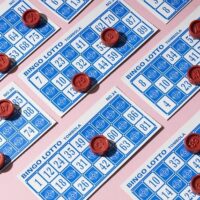Legalization of Bingo in Texas

Bingo is a straightforward game that virtually everyone has played at some point in their lives. In Texas however, the road to allow this simple game is somewhat complicated. Legalized bingo actually began with an amendment to the Texas Constitution in 1980. The Constitutional amendment allowed the legislature to authorize and regulate bingo games conducted only by certain organizations. The State Constitution allows only properly licensed churches, synagogues, religious societies, volunteer fire departments, nonprofit veterans organizations, fraternal organizations, and nonprofit organizations supporting medical research or treatment programs to host and conduct these games. It is worth noting that State law does provide exceptions from the licensing requirements in certain situations. For example, individuals can play bingo in the confines of a home for recreation purposes so long as there are no more than 15 players and the entry fee and any prizes are no more than something nominal. However, games with a large number of players or games in which prizes of more than a nominal value are awarded must be licensed.
Following the Constitutional amendment, the state Legislature adopted Chapter 2001 of the Texas Occupations Code which outlines the regulation requirements. Under state law, Texas Cities and Counties cannot legalize bingo games within their jurisdictions unless they first obtain the approval of their respective qualified voters. The Occupations Code requires the question to go to the electorate before any official local government action to legalize these games. A city council may order the election on its own motion or must order an election upon receipt of a valid petition of its citizens. If the voters approve of bingo within their jurisdiction, the legalization takes effect on the 14th day after canvass of the election.
Following legalization in a particular city or county, those wishing to conduct bingo games must then apply to the Texas Lottery commission for a license. While this may seem a little odd on the surface, in many ways bingo is quite similar to a lottery. Numbered and lettered balls go into a hopper, they’re called out one at a time and players eagerly await to see if they’ll be the lucky winner. In fact, the Texas Occupations code defines bingo as “a specific game of chance, commonly known as bingo or lotto, in which prizes are awarded on the basis of designated numbers or symbols conforming to randomly selected numbers or symbols.” When an applicant sends their license application to the state lottery commission, they must also send a copy of the application to their city or county as well. Once properly licensed, the games are tightly regulated by the state. Prizes awarded cannot have a value of more than $750 for a single game, and generally prizes cannot have an aggregate value of more than $2,500.
Generally, an organization which is licensed to conduct bingo games is required to collect a prize fee of 5% from any person who wins a cash bingo prize of more than $5. The prize fees essentially go back to the state lottery commission to fund the regulation and oversite of these programs. Unfortunately, local jurisdictions who have legalized these games in the past few years are not entitled to any portion of these prize fees. However, Cities and Counties who held an election authorizing bingo games in their jurisdiction prior to November 1, 2019 are entitled to receive a portion of the bingo proceeds. Cities and Counties who legalized bingo games in their jurisdictions prior to November 1, 2019 are entitled to 50% of the prize fees collected.
Please do not rely on this article as legal advice. We can tell you what the law is, but until we know the facts of your given situation, we cannot provide legal guidance. This website is for informational purposes and not for the purposes of providing legal advice.
